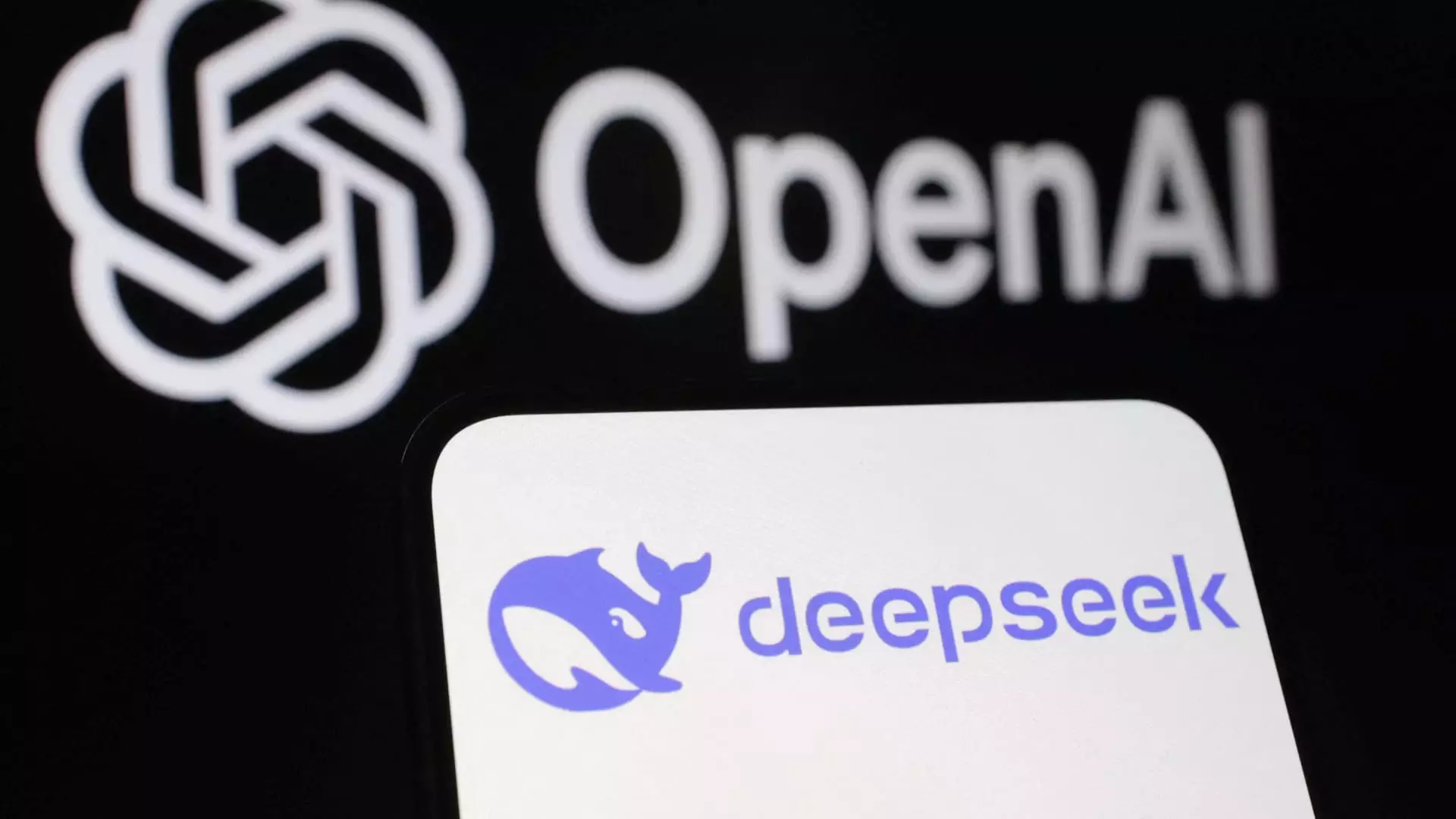The emergence of DeepSeek, a nascent Chinese AI startup, has created significant waves across global technology markets, particularly in the U.S., with its innovative and economical approach to artificial intelligence triggering a notable sell-off in tech stocks. Established in May 2023 by Liang Wenfeng, who utilized funds from his AI-powered hedge fund, DeepSeek’s rapid ascent to prominence calls into question the sustainability of the ongoing AI stock boom in America, which has enjoyed a bullish trend for the past two years.
In December 2023, DeepSeek launched a free, open-source large language model that was developed in just two months at an impressively low cost of under $6 million. This compelling financial efficiency quickly captured the attention of investors and industry experts alike. DeepSeek’s R1 model, released on January 20, 2024, has reportedly outperformed leading models, including those from OpenAI, in third-party evaluations. What differentiates R1 is its advanced reasoning abilities, which allow it to produce results by first generating a “chain of thought,” thereby enhancing response accuracy. This unique capability positions DeepSeek as a formidable competitor in an arena dominated by tech giants such as Nvidia and OpenAI.
As news of DeepSeek’s accomplishments spread, prominent voices in the tech industry began to recognize its competitive edge. Alexandr Wang, the CEO of Scale AI, highlighted DeepSeek’s achievements during a discussion at the World Economic Forum in Davos, asserting that its capabilities rival those of the leading American AI products. With claims of having around 50,000 H100 chips from Nvidia—despite U.S. export restrictions on advanced AI chips to China—DeepSeek’s potential to harness such resources raised eyebrows and challenged existing assumptions about the U.S.’s dominance in AI technology.
The influence of social media on DeepSeek’s burgeoning reputation should not be underestimated. Influential figures like Marc Andreessen and Chamath Palihapitiya took to platforms like X (formerly Twitter) to commend DeepSeek’s R1 model, describing it as a breakthrough in artificial intelligence. The overwhelmingly positive reception online translated into a spike in downloads of DeepSeek’s mobile application, escalating fears within the U.S. tech ecosystem, particularly for pricier AI solutions like ChatGPT.
The market sentiment shifted rapidly, resulting in U.S. tech stocks experiencing massive declines. On the first trading day of the week, the Nasdaq Composite fell by as much as 3.6%, with shares of Nvidia plummeting over 12%—its worst performance since March 2020. This staggering drop illustrated that investor confidence was shaken at its core. The ramifications were felt sector-wide, with other chipmakers and power producers witnessing significant drops in their stock prices. The ripple effect of DeepSeek’s rise was evident, as companies that were previously anticipated to gain from AI-driven data center demands began to falter.
DeepSeek’s rapid ascent raises urgent questions about the underlying investment strategies within the AI sector. The staggering sums funneled into American tech firms purportedly pushing the AI narrative can now be reconsidered in light of the affordability and effectiveness showcased by DeepSeek. As more investors evaluate the long-term viability of heavy investments in traditional companies, the possibility of a paradigm shift in AI funding is becoming increasingly plausible.
Additionally, the emergence of a serious contender from China throws significant scrutiny on existing supply chain dynamics within the tech industry. DeepSeek’s success may encourage more aggressive investment and development efforts in AI from other emerging markets, further intensifying the global competition for technological supremacy.
The rapid rise of DeepSeek signals that the landscape of artificial intelligence development is evolving at an unprecedented pace. As a new player disrupts the status quo, the broader implications for investors, industry leaders, and policymakers are substantial. The narrative that has long favored U.S. tech giants is now challenged, marking the potential dawn of a new era in AI advancements and competition. The ongoing developments suggest that stakeholders should brace themselves for a shifting tide in the tech industry—one defined by innovation, affordability, and unexpected challengers. The battle for AI dominance is far from over, and DeepSeek may just be the catalyst for a broader reevaluation of how innovation is pursued and valued across the globe.

